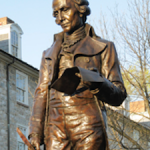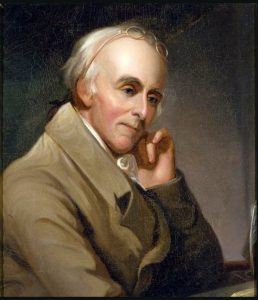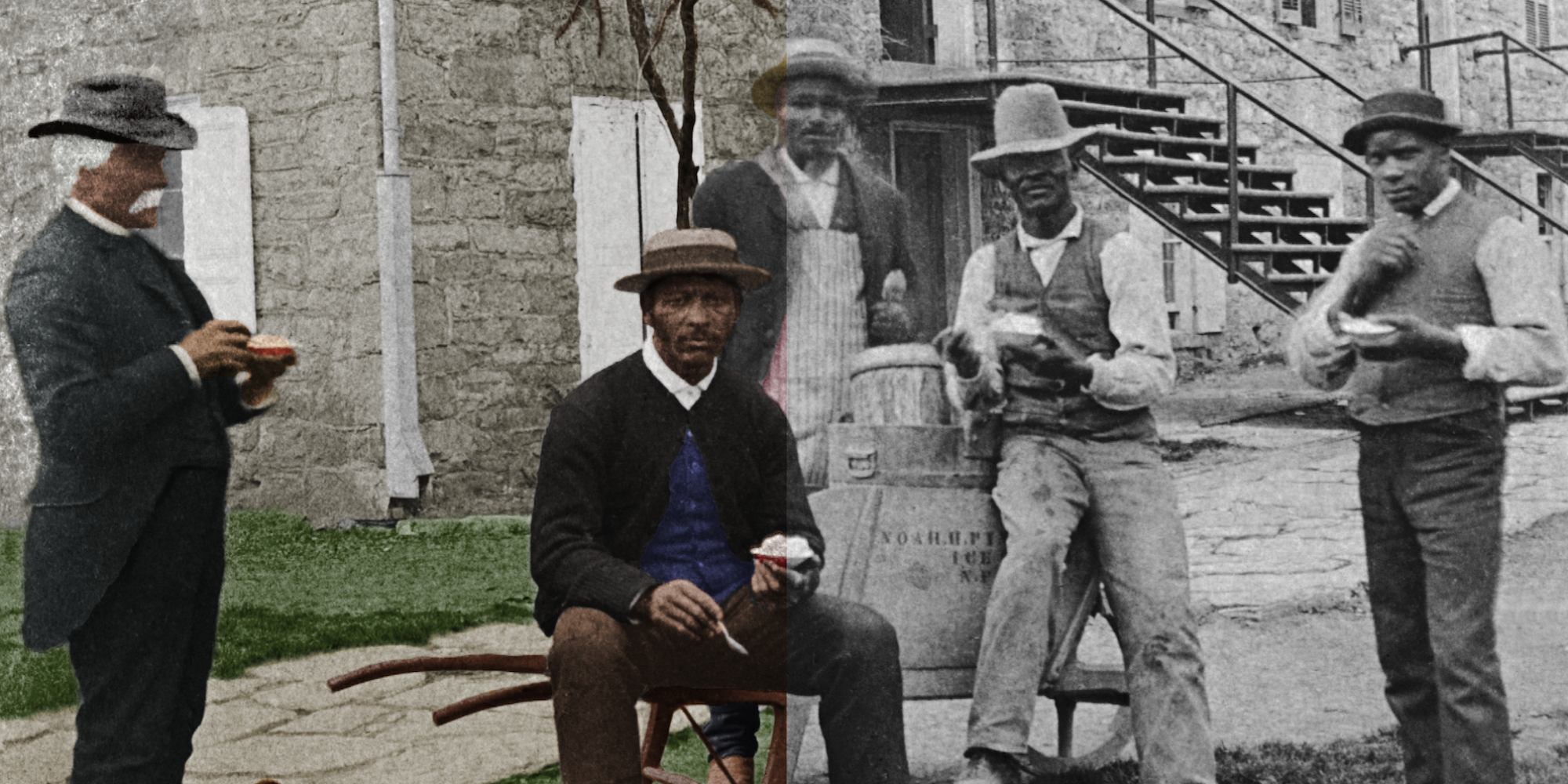PUBLIC MEMORY AT DICKINSON
 A statue of Rush occupies the very center of the Dickinson campus. He is also widely featured in most college publications, and has become an inspiration for the college’s modern approach toward promoting “useful knowledge.” The college website does include a section acknowledging that Rush’s views on race and slavery “were not without flaws.”
A statue of Rush occupies the very center of the Dickinson campus. He is also widely featured in most college publications, and has become an inspiration for the college’s modern approach toward promoting “useful knowledge.” The college website does include a section acknowledging that Rush’s views on race and slavery “were not without flaws.”
BRIEF PROFILE
Born near Philadelphia in 1745 into a slaveholding household, Benjamin Rush was a noted physician, reformer and signer of the Declaration of Independence. Rush’s anti-slavery leanings became apparent after 1769, following a meeting with influential Quaker abolitionist Anthony Benezet, a vocal critic of the Trans-Atlantic Slave Trade. Rush then became an open admirer of Benezet, later writing that his “name is held in veneration in these parts and deserves to be spread throughout the world.” As an adult, Rush was not shy about expressing his own anti-slavery feelings. In one letter, dated April 1773, the physician claimed to have “refused a thousand guineas a year lately offered to me in Charleston, South Carolina,” preferring instead to reside in Pennsylvania rather than “where wealth has been accumulated only by the sweat and blood of Negro slaves.” Yet many Pennsylvanians did benefit from “the sweat and blood of Negro slaves” since the state’s gradual abolition act (and eventual total freedom) was still many years away. Rush himself was one of these slaveholders.
FURTHER READING
- Dickinson College Archives: Benjamin Rush (1745-1813)
- Bilodeau, Christopher J. “Thinking With Benjamin Rush.” Dickinson Magazine, Fall 2017 [WEB]
- Brodsky, Alyn. Benjamin Rush: Patriot and Physician. New York: St. Martin’s Press, 2004.
- D’Elia, Donald J. “Dr. Benjamin Rush and the Negro.” Journal of the History of Ideas 30, no. 3 (1969): 413-22 [JSTOR]
- Fried, Stephen. Rush. New York: Crown, 2018.
- Morgan, Rachel. “Benjamin Rush: Understanding His Ties to Slavery.” American Slavery, Fall 2017 [WEB]
- Sobel, Mechal. Teach Me Dreams: The Search for Self in the Revolutionary Era. Princeton, NJ: Princeton University Press, 2002 [WEB]
IMAGE GALLERY

PRIMARY SOURCES
- Benjamin Rush to Barbeu Dobourg, April 29, 1773, in L.H. Butterfield (ed.), Letters of Benjamin Rush, (Princeton, NJ: Princeton University Press, 1951), 1:76-77, [WEB].
- On Benezet’s legacy
- Benjamin Rush to Dobourg, April 29, 1773, in Butterfield, Letters of Benjamin Rush, 1:76-77, [WEB]
- On his unwillingness to move to South Carolina

